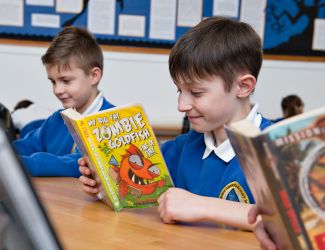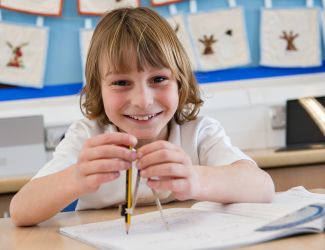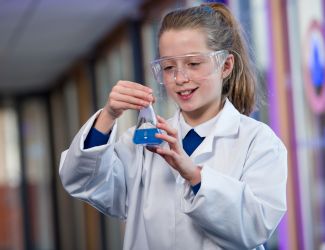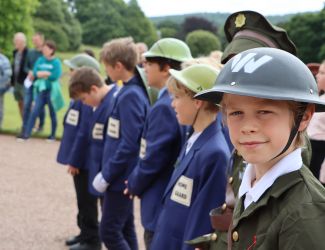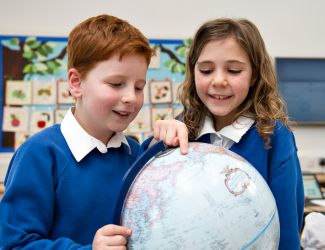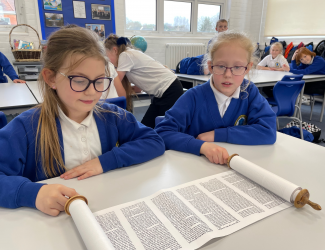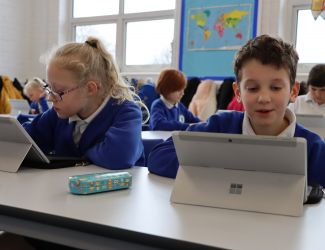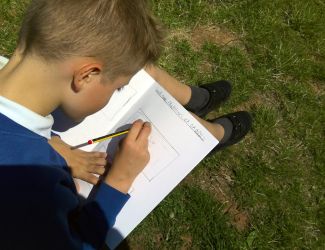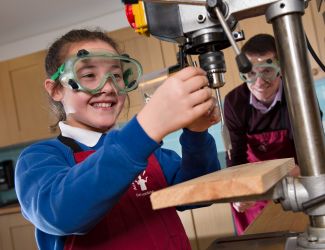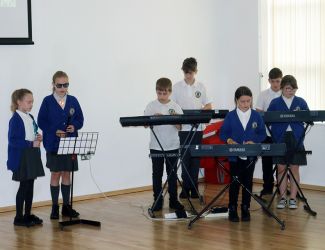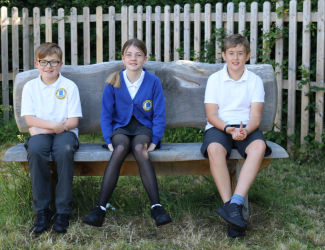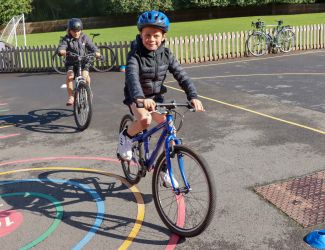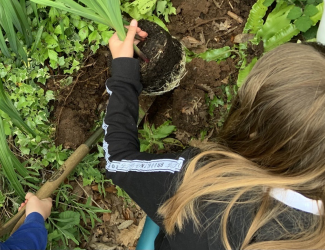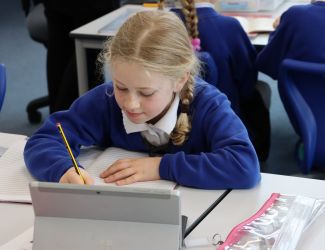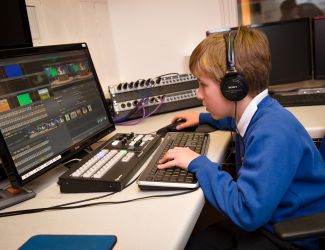Year 3 Art Curriculum
Children will be taught various artistic techniques and will create artworks using a multitude of methods. The completed artworks will include: clay work, printing, landscapes and observational drawings. They will be taught…
Sewing the Seasons
- The children will learn how to thread a needle.
- How to sew using a running stitch.
- The children will be challenged to pick an appropriate fabric and colour for their chosen season.
Christmas Card Design
- Use a variety of controlled and fine-brush skills and techniques using inks or watercolours.
- Introducing how to control wet colours and bleeding into them with other colours to create interesting effects.
- Diagonal brushstrokes and flicking and twisting the end to achieve a quality finish. Metallic paint applied using handle of brush in a stippling-style technique.
Still Life Painting
- Explore the effect on paint of adding water, glue, sand, sawdust and use this in a painting.
- Represent things observed, remembered or imagined, using colour selecting appropriate paint and brushes.
- Use a viewfinder to select a view and visual clues in an image, then record what is in the frame
- Plan the use of a camera to take a specific photo or set of photos
- Building upon painting techniques from previous years, learn about specific techniques such as impasto.
- Learning when and how to use different brushes for varying purposes using acrylic paint.
Mayan Mask Making
- They will develop the following techniques: painting, cutting, folding, sticking.
- Learning how to apply to paint to a functional object (mask).
- Represent things observed, remembered or imagined, using colour selecting appropriate paint and brushes
- Introduces different types of brushes for specific purposes
- Improve skills of overlapping and overlaying to place objects in front and behind
- Cut multiple shapes with scissors and arrange /stick these on a surface for a purpose
Roman Clay Coil Pot
- Building on clay manipulation skills children apply these skills in a more controlled and precise way and using modelling tools to enhance work: rolling, coiling, score, slip, stick.
- Use clay to construct a simple functional form such as a coil pot, smoothing and joining clay with care.
- Build in clay a functional form using two/three building techniques and some surface decoration
Representing Form via Drawing:
- To show light and dark and depict form and depth using shading techniques
- Light and darks – creating form using chalk and charcoal.
Roman Portraiture/Busts – Drawing a Profile from a Photo
- Using photography and shadows - tracing to capture an accurate image.
- Adding detail then reducing scale digitally.
- Plan the use of a camera to take a specific photo or set of photos
- Uses line, tone, shape and mark with care to represent things seen, imagined or remembered.
- Experiment with creating mood, feeling, movement and areas of interest using different media.
- Use a painting program to make an image corresponding to their work in painting and digital collage to create a portrait in profile.
Shang Dynasty Inspired Art - Wax Etchings
- New technique of etching requires fine drawing skills which adds to drawing skills learnt in previous projects.
- Introducing textures and effects from drawing upon different materials.
- Observe patterns from vases and artefacts.
- Recreate a pattern inspired by vases from the Shang Dynasty.
Watercolour Landscapes
- Applying paint in a different way to that of the impasto techniques that were previously taught.
- Using water as a basis for the painting from water washes; applying with a wide brush (not previously introduced).
- Observing and learning how the paint behaves differently to other paints to create different effects and textures.

